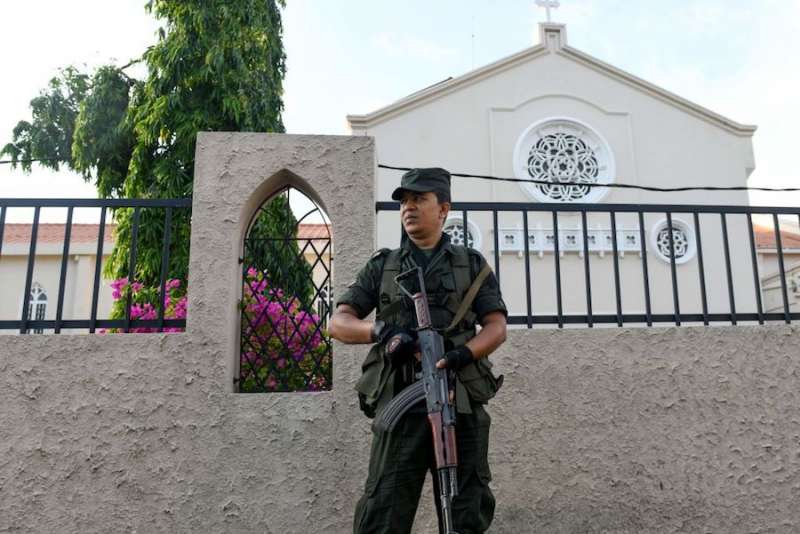The Sri Lankan Catholic Church on May 12 held its first public Sunday Masses since suicide bombers claimed more than 250 lives and injured hundreds of others on Easter.
Attendees at the Masses saw heightened safety precautions, including full-body searches, ID checks, and street patrols by military and police forces, according to The Guardian. At the churches’ gates, volunteers kept an eye out for suspicious people.
Last week, President Maithripala Sirisena told the Associated Press that “99%” of suspects related to the bombings have been arrested and explosive material has been seized.
Church leaders are considering reopening Catholic schools on Tuesday, the AP reported.
As a security measure, all public Masses had been cancelled for the two weeks following attacks by eight suicide bombers on two Catholic churches, a protestant church, three hotels, a residence, and a zoo on April 21.
On the Sunday following the attacks, a televised Mass was held at the private residential chapel of Cardinal Malcolm Ranjith, the archbishop of Colombo. A private ordination Mass quietly went ahead as planned April 30 in the village of Thannamunai, with attendance lower than had originally been anticipated.
On Monday, several social media platforms were banned indefinitely by the government amid concerns surrounding hateful speech and fake news. Facebook, Whatsapp, and Youtube among those sites blocked, according to CNN.
Other safety precautions undertaken by the government include enforcement of curfews and banning face veils. The government has also sought to suppress the jiihadist group National Thowheeth Jama'ath, whom the police say was responsible for the attacks. ISIS leaders have also claimed responsbility for the bombings, saying the local jihadists had pledged loyalty to the Islamic State.
According to The Guardian, 56 people have been arrested in connection with the attacks, 13 safe-houses have been discovered, and 41 bank accounts belonging to the bombers have been found. However, police officials have continued to caution people about potential threats.
Since the attacks, Catholic charity groups have provided aid to the victims and their families. UCA News reported that Caritas Sethsarana has been funding medical services, transportation assistance, legal support, and home repair.
“We have identified those who have been heavily traumatized, and counseling by professionals is underway,” said Father Claude Nonis, an organizer for these church-run operations.
“I was inspired by what I saw Caritas doing,” a policeman at one of the hospitals told UCA News.
“They were right there with the families, helping them to identify the bodies, and they stayed with them until all the necessary arrangements had been made.”

